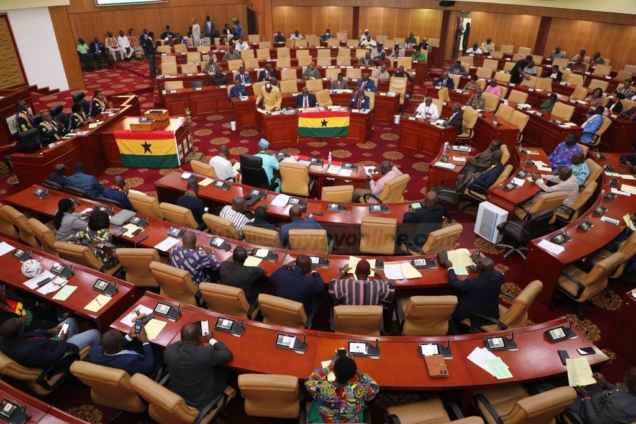The Food and Beverage Association of Ghana (FABAG) is up in arms over some tax proposals currently in Growth and Sustainability Bill.
The Association’s Executive Director, John Awuni is urging Parliament to pull the brakes on the proposal as it will further deepen the woes of producers.
The Growth and Sustainability Bill forms part of measures by the government to rake in GH¢2.2 billion for the country by the end of this year.
However, the development will see taxes slapped on the profit before tax of companies and institutions operating in the country, including firms in the extractive sector, such as mining and upstream oil and gas firms.
Mr Awuni says "if the government really has their ears on the ground and properly researched they will not go further to bring even 1% or 0.5% of any type of tax in the name of the fact that the companies will bear it."
"Companies will pass it on to the consumers. Consumers' disposable income is very low so how can they afford it? So it goes back to the fact that the companies cannot even meet their budget or sales targets."
The taxes will be spread across three categories dubbed A, B and C who are expected to pay 5% on Profit before tax, 1% of gross production, and 2.5% of Profit before tax respectively.
But ahead of its debate and possible passage, Food and Beverage producers are kicking against the bill over its propensity to kick many of its members out of business.
According to John Awuni, many of their members are already reeling under the implications of the economic turmoil and another imposition will throw them out of gear.
Speaking on Accra-based Citi FM, FABAG boss urged government to rather widen the tax net instead than worsen the burden on tax-compliant businesses.
"So clearly what we are looking at is that let the government ensure that people who are outside the tax bracket [are roped in]," he said.
Economists such as the University of Ghana Business School's Prof. Godfred Bokpin are worried that excessive tax burden on the populace will impede the economic growth expected.
Speaking on Joy FM’s Super Morning Show on Wednesday, he noted that there are already existing tax avenues that can be explored to generate more income for the nation.
Prof Bokpin believed that the ineffective implementation of tax policies causes great loss to the nation.
“You get the sense that the players in the economy are overburdened with taxes. When you interact with the private sector, and households you get that impression. In as much as we support the need to generate more revenue, we need to be mindful not to undermine private sector competitiveness.
“To do so, we can increase domestic revenue without increasing existing rates or introducing new tax handles. Ghana’s VAT efficiency rate is around 45%."
Latest Stories
-
Police officer interdicted after video of assault goes viral
4 mins -
KNUST’s Prof. Reginald Annan named first African recipient of World Cancer Research Fund
5 mins -
George Twum-Barimah-Adu pledges inclusive cabinet with Minority and Majority leaders
53 mins -
Labourer jailed 5 years for inflicting cutlass wounds on businessman
54 mins -
Parliament urged to fast-track passage of Road Traffic Amendment Bill
54 mins -
Mr Daniel Kofi Asante aka Electrician
55 mins -
Minerals Commission, Solidaridad unveils forum to tackle child labour in mining sector
60 mins -
Election 2024: Engagement with security services productive – NDC
1 hour -
Retain NPP for the good of Ghana – Rebecca Akufo-Addo
1 hour -
‘Let’s work together to improve sanitation, promote health outcome’ – Sector Minister urges
1 hour -
Ellembelle MP cuts sod for six-unit classroom block at Nkroful Agric SHS
1 hour -
‘I’ll beat the hell out of you if you misbehave on December 7’ – Achiase Commanding Officer
1 hour -
AFPNC leads the charge on World Prematurity Day 2024
1 hour -
Court remands unemployed man over theft of ECG property
1 hour -
Election security rests solely with the police – Central Regional Police Command
1 hour

